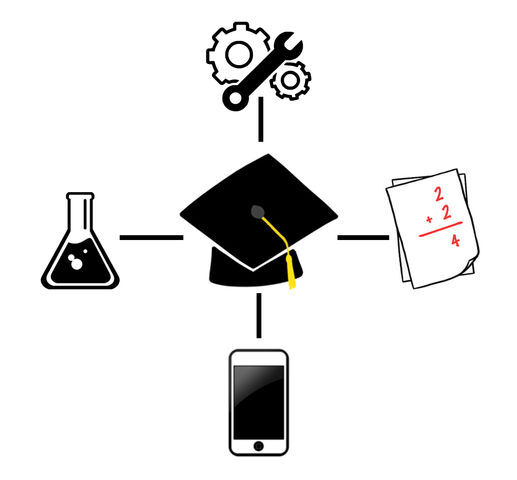A question which commonly arises when discussing college majors with extended family members and neighbors alike is the inevitable “What do you plan on doing with your degree?”
Given the current state of technology, there is hardly room for a non-STEM response. Science and technology and math are all fantastic disciplines with lucrative applicability, but forgetting our roots by discarding the humanities and social sciences does a disservice to the world.
Charles Wright Mills and Karl Marx provide as much a blueprint for success as Einstein; Interpreting the world around you and extrapolating meaning from mundane and everyday activities and societal structures is an essential tool in shaping a formidable generation yet to fully flourish.
An article published by the economist Dennis Vilorio remarks on the rapid growth of the STEM industry, with the industry “grow[ing] to more than 9 million [jobs] between 2012 and 2022.” Vilorio is the assistant outreach editor for the USDA’s Economic Research Service and previously worked at the Bureau of Labor Statistics for six years. There’s no debate surrounding the efficacy and increase in earning potential afforded to students who choose the STEM path—especially computer-related fields. The mistake comes when sociology and history students suffer due to crippled funding and diminished attention paid to their pursuits.
Public sentiment may be the plug to keep the dam from bursting, preventing the seemingly inevitable collapse of the softer sciences and humanities. The University of Wisconsin at Stevens Point drew up plans to eliminate more than 10 liberal arts majors earlier this year, but when faced with extensive public and alumni backlash, the school demurred, at least temporarily. A more recent plan, as reported by the Milwaukee Journal Sentinel, reveals the school administration’s plans to cut only six low-demand majors.
Employers still seek out skills cultivated in liberal arts classes, which include empathy, critical thinking, research ability, affability and leadership. When the curriculum is limited to just hard sciences and maths, little room is found for nurturing these skills and traits.
Experiencing other cultures and the history of our shared human experience falls by the wayside unless explicitly sought outside the classroom by especially motivated students. The value of communication no longer emphasized in favor of terse, technical exchanges in chat clients across so many corporate floor plans.
This is not meant to deride or devalue STEM degrees in any way—quite the contrary, actually. There’s a harmony found when differing strengths are melded, creating a beautiful, productive society full of engaged people. A classmate may have aced differential equations, but struggle when attempting to delegate work to their future employees. Hopefully, someone will be there to fill that gap, to teach and guide those without the requisite abilities to operate at full strength. Though mostly hypothetical, the thought of a world spun out of control by cold hard calculation without a soft edge to temper its force seems very unappealing.
– Zachary Keel is a recent sociology graduate and plans to return to Texas State as a graduate student in the fall of 2019
Guest submission: A well-rounded education requires a balance between STEM, humanities
November 14, 2018

Science and technology and math are all fantastic disciplines with lucrative applicability, but forgetting our roots by discarding the humanities and social sciences does a disservice to the world.
Illustration by Cameron Hubbard
Donate to The University Star
Your donation will support the student journalists of Texas State University. Your contribution will allow us to purchase equipment and cover our annual website hosting costs.


















